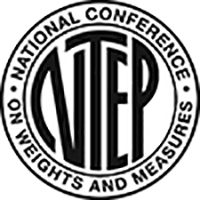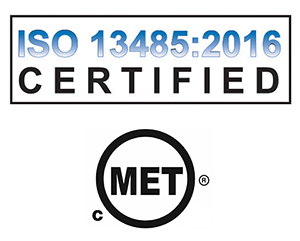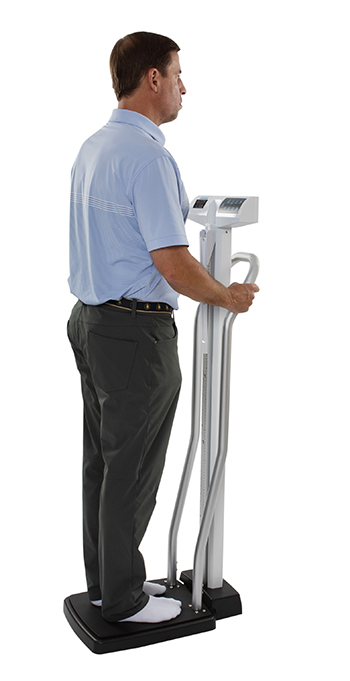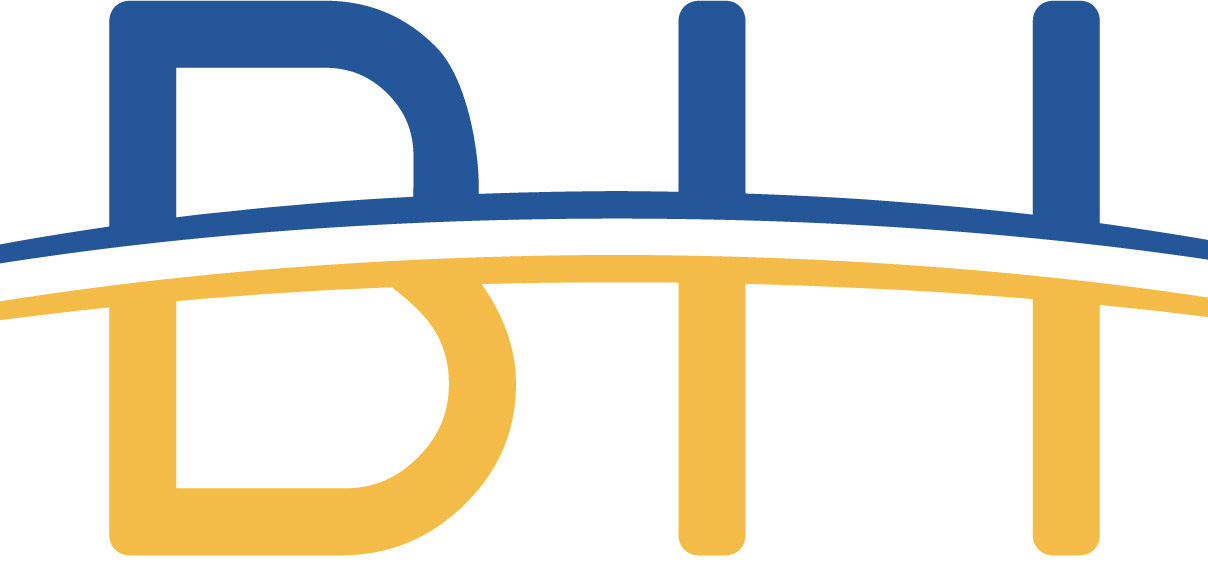 When researching new medical equipment, supply chain staff may look to specific regulatory or certification requirements for guidance. For example, a new exam table needs to meet ADA compliance standards or a new device must comply with FDA regulations depending on its designated class. For Healthcare facilities it also important to look for the certifications and approvals that apply specifically to the medical industry, such as ISO:13485. ISO:13485 is a globally recognized standard for quality management systems specifically focused on the medical device industry. Healthcare facilities can also look for MET certification which signifies that the equipment meets international standards for safety and performance. Some medical equipment advertises NTEP certification which does not pertain to medical devices and is primarily focused on weighing and measuring devices used in commercial trade. NTEP does not address requirements related to patient safety, efficacy, and performance. Additionally, some features related to NTEP certification may potentially be a detriment to a healthcare facilities’ operations and budgets.
When researching new medical equipment, supply chain staff may look to specific regulatory or certification requirements for guidance. For example, a new exam table needs to meet ADA compliance standards or a new device must comply with FDA regulations depending on its designated class. For Healthcare facilities it also important to look for the certifications and approvals that apply specifically to the medical industry, such as ISO:13485. ISO:13485 is a globally recognized standard for quality management systems specifically focused on the medical device industry. Healthcare facilities can also look for MET certification which signifies that the equipment meets international standards for safety and performance. Some medical equipment advertises NTEP certification which does not pertain to medical devices and is primarily focused on weighing and measuring devices used in commercial trade. NTEP does not address requirements related to patient safety, efficacy, and performance. Additionally, some features related to NTEP certification may potentially be a detriment to a healthcare facilities’ operations and budgets.
 Proponents of NTEP certification for medical equipment will propose that the certified equipment is more accurate and reliable than non-certified products. However, the same testing required by NTEP is the same accuracy testing that is part of the ISO:13485 and MET standards. These tests include accuracy, repeatability, durability, etc. If a scale passes the ISO:13485 and MET testing requirements, it will also meet or exceed the NTEP requirements that pertain to the specific functions used in a medical setting without the added expense and in-field complications associated with non-medical commercial requirements. Additionally, NTEP certification does not guarantee accuracy once a scale has been in circulation in a facility. Accuracy relies on ongoing maintenance and proper use, just as with any certification (ISO:13485 or MET).
Proponents of NTEP certification for medical equipment will propose that the certified equipment is more accurate and reliable than non-certified products. However, the same testing required by NTEP is the same accuracy testing that is part of the ISO:13485 and MET standards. These tests include accuracy, repeatability, durability, etc. If a scale passes the ISO:13485 and MET testing requirements, it will also meet or exceed the NTEP requirements that pertain to the specific functions used in a medical setting without the added expense and in-field complications associated with non-medical commercial requirements. Additionally, NTEP certification does not guarantee accuracy once a scale has been in circulation in a facility. Accuracy relies on ongoing maintenance and proper use, just as with any certification (ISO:13485 or MET).
To receive ISO:13485 certification a manufacturer, such as Health o meter Professional Scales, must follow strict procedures to ensure the products are designed and manufactured to the highest standards of quality. To obtain MET certification for a medical device, a manufacturer submits detailed product information and equipment samples to a recognized certification agency for review. The product is then put through rigorous testing to ensure it meets required standards for accuracy, safety, durability, and reliability. For both ISO:13485 and MET certification, a product’s technical documentation is also reviewed, including design specifications, manufacturing processes, and quality control measures. These additional requirements and standards are particularly associated with medical products and are not part of NTEP certification. Because of the focus within the medical industry, ISO:13485 and MET design guidelines also emphasize user and patient risk assessment for a product’s design and manufacturing. But because NTEP’s focus is primarily on commercial uses, the certification process does not address risk management. When a manufacturer is designing their products using ISO:13485 or MET guidelines, the company is looking for features that will protect patients and caregivers, such as Health o meter® Professional’s Everlock® unit lock function. This function can help facilities protect against the largest cause of injury or death associated with weight scales – errors due to incorrect unit. NTEP certification does not require a formal risk assessment and it does not specifically address the use of equipment with medical patients in the same way ISO:13485 or MET guidelines do.
 Some may argue that having NTEP certification along with ISO:13485 and MET would be the best scenario for a piece of equipment, however adding an irrelevant NTEP certification can actually have negative operational effects and adds no clinical value. Obtaining NTEP certification can be a costly endeavor for a manufacturer and those added costs are often passed onto the end-user. NTEP certification also includes some specific requirements regarding the product’s interface and calibration, which can make the product more complicated. There can be restrictions on certain settings or limits on replaceable parts, which all can be a detriment to a facility’s workflow.
Some may argue that having NTEP certification along with ISO:13485 and MET would be the best scenario for a piece of equipment, however adding an irrelevant NTEP certification can actually have negative operational effects and adds no clinical value. Obtaining NTEP certification can be a costly endeavor for a manufacturer and those added costs are often passed onto the end-user. NTEP certification also includes some specific requirements regarding the product’s interface and calibration, which can make the product more complicated. There can be restrictions on certain settings or limits on replaceable parts, which all can be a detriment to a facility’s workflow.
Health o meter® Professional scales are designed and tested beyond an NTEP standard, with ISO:13485 and MET certification standards at the forefront of each product’s foundation. These strict quality standards include accuracy and durability testing, risk assessment, optimum workflow processes and more, all with the primary focus of usage within a medical setting. When utilizing a Health o meter® Professional product within a healthcare facility users can be confident the scale is at the highest level of quality, reliability, and performance.
 Safe Patient Handling
Safe Patient Handling 
